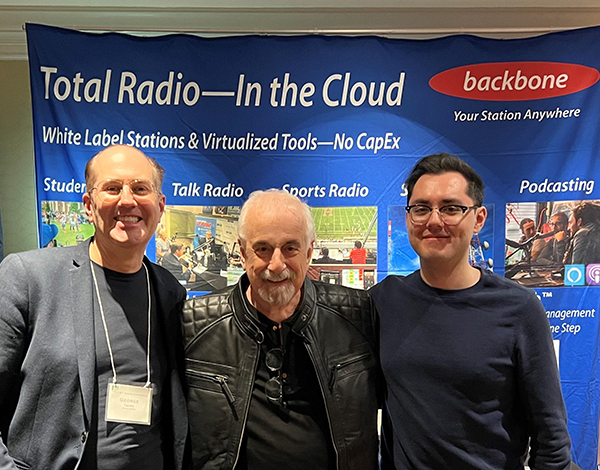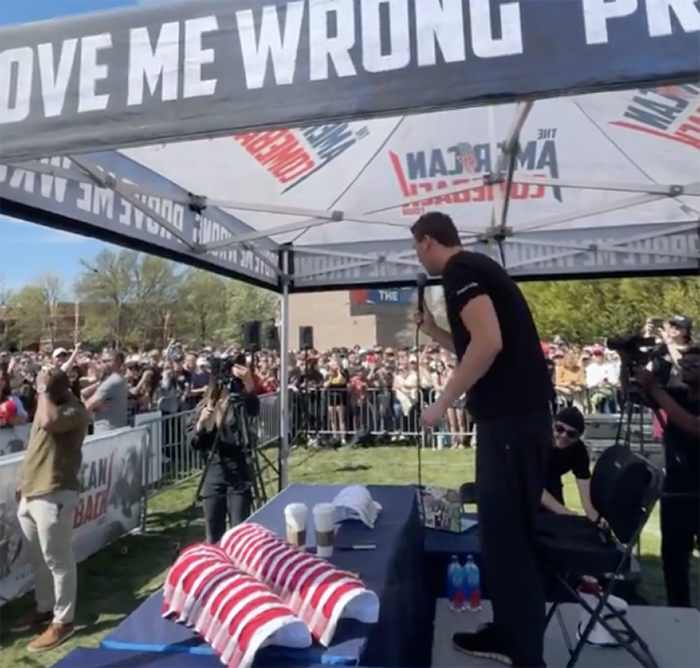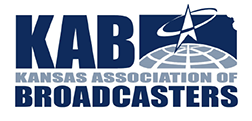The 85th annual Intercollegiate Broadcasting System (IBS) conference took place this past Friday and Saturday (3/1-2) at the Sheraton Times Square hotel in New York City drawing some 800+ student broadcasters, faculty, and administrators from campus stations across the nation. TALKERS founder and multi-radio format pioneer Michael Harrison was among the event’s featured speakers. Harrison’s one-hour address titled, “The Next 10 Years of Media and Popular Culture is…?” brought up as many questions as it did answers about what young broadcasters entering professional media today should be prepared for in navigating the unpredictably turbulent waters of the next decade and beyond. Among the sweeping panorama of topics covered in his address, Harrison told the students, “When looking to the future, don’t be too sure that current events will follow a predictable script. There are always ‘black swan events’ that change the storyline and our expectations in an instant. Plus, there are multiple outcomes, possibilities, and forks in the road for almost every situation.” Regarding the current focus on artificial intelligence, Harrison advised, “All technology is a double-edged sword and AI will prove to be a particularly consequential one with both positive and negative implications. However, don’t fall into the age-old trap of thinking that productions and performances created or enhanced by new technology are necessarily ‘artificial’ or ‘fake.’ New tools not only create new art, they have an irrepressible influence on giving rise to new culture. The immediate years ahead are likely going to provide us with the challenging question of ‘what does it mean to be truly human?’” Harrison concluded, “As young broadcasting students in 2024 looking to make a difference in the world, be prepared to face the challenge of following your dreams, ideals and inspiration while confronting the harsh realities of making a living in a stressed environment of relentless change. We live our lives in this business at the dangerous intersection between art and commerce.”
questions as it did answers about what young broadcasters entering professional media today should be prepared for in navigating the unpredictably turbulent waters of the next decade and beyond. Among the sweeping panorama of topics covered in his address, Harrison told the students, “When looking to the future, don’t be too sure that current events will follow a predictable script. There are always ‘black swan events’ that change the storyline and our expectations in an instant. Plus, there are multiple outcomes, possibilities, and forks in the road for almost every situation.” Regarding the current focus on artificial intelligence, Harrison advised, “All technology is a double-edged sword and AI will prove to be a particularly consequential one with both positive and negative implications. However, don’t fall into the age-old trap of thinking that productions and performances created or enhanced by new technology are necessarily ‘artificial’ or ‘fake.’ New tools not only create new art, they have an irrepressible influence on giving rise to new culture. The immediate years ahead are likely going to provide us with the challenging question of ‘what does it mean to be truly human?’” Harrison concluded, “As young broadcasting students in 2024 looking to make a difference in the world, be prepared to face the challenge of following your dreams, ideals and inspiration while confronting the harsh realities of making a living in a stressed environment of relentless change. We live our lives in this business at the dangerous intersection between art and commerce.”
Since its inception in 1940, IBS has been led by outstanding volunteers who are passionate about student media. Congratulations to Norm Prusslin, chairperson, IBS board and Chris Thomas, president, IBS as well as conference chairperson Shawn Novatt and the entire board upon the success of this year’s gathering.

Pictured above is Michael Harrison (c) with two key executives from Backbone Networks at the innovative company’s display among the exhibits at the annual IBS conference. Representing two generations of the legendary Capalbo family of radio groundbreakers are George N. Capalbo, CTO, Backbone Networks (l) and his son George L. Capalbo, marketing communications director, Backbone Networks (r). They are the son and grandson of the late WRKO, Boston radio satellite innovator George J. Capalbo.
Share this with your network





 questions as it did answers about what young broadcasters entering professional media today should be prepared for in navigating the unpredictably turbulent waters of the next decade and beyond. Among the sweeping panorama of topics covered in his address, Harrison told the students, “When looking to the future, don’t be too sure that current events will follow a predictable script. There are always ‘black swan events’ that change the storyline and our expectations in an instant. Plus, there are multiple outcomes, possibilities, and forks in the road for almost every situation.” Regarding the current focus on artificial intelligence, Harrison advised, “All technology is a double-edged sword and AI will prove to be a particularly consequential one with both positive and negative implications. However, don’t fall into the age-old trap of thinking that productions and performances created or enhanced by new technology are necessarily ‘artificial’ or ‘fake.’ New tools not only create new art, they have an irrepressible influence on giving rise to new culture. The immediate years ahead are likely going to provide us with the challenging question of ‘what does it mean to be truly human?’” Harrison concluded, “As young broadcasting students in 2024 looking to make a difference in the world, be prepared to face the challenge of following your dreams, ideals and inspiration while confronting the harsh realities of making a living in a stressed environment of relentless change. We live our lives in this business at the dangerous intersection between art and commerce.”
questions as it did answers about what young broadcasters entering professional media today should be prepared for in navigating the unpredictably turbulent waters of the next decade and beyond. Among the sweeping panorama of topics covered in his address, Harrison told the students, “When looking to the future, don’t be too sure that current events will follow a predictable script. There are always ‘black swan events’ that change the storyline and our expectations in an instant. Plus, there are multiple outcomes, possibilities, and forks in the road for almost every situation.” Regarding the current focus on artificial intelligence, Harrison advised, “All technology is a double-edged sword and AI will prove to be a particularly consequential one with both positive and negative implications. However, don’t fall into the age-old trap of thinking that productions and performances created or enhanced by new technology are necessarily ‘artificial’ or ‘fake.’ New tools not only create new art, they have an irrepressible influence on giving rise to new culture. The immediate years ahead are likely going to provide us with the challenging question of ‘what does it mean to be truly human?’” Harrison concluded, “As young broadcasting students in 2024 looking to make a difference in the world, be prepared to face the challenge of following your dreams, ideals and inspiration while confronting the harsh realities of making a living in a stressed environment of relentless change. We live our lives in this business at the dangerous intersection between art and commerce.”
 For the last several years, KSHSAA has opted into agreements with third parties that prevented local broadcasters from video-streaming games when the exclusive partner opted to do so. Kansas Association of Broadcasters president Allison Mazzei states, “I’m pleased that now, in post‐season, friends and families of student athletes will have access to free, quality coverage from the same broadcasters who cover their teams all season long. Local high school sports should be covered by local broadcasters. Our broadcasters depend on the revenue generated from high school sports coverage to stay on air and provide local news, weather, entertainment, and emergency alerts that communities depend on.” The KAB also notes students interested in pursuing careers in radio broadcast will also benefit from the legislation. Previously, if a local station was prohibited from video streaming a post‐season game, so were their student workers. Now, students will be able to cover all of their school’s activities regardless if it takes place in post season.
For the last several years, KSHSAA has opted into agreements with third parties that prevented local broadcasters from video-streaming games when the exclusive partner opted to do so. Kansas Association of Broadcasters president Allison Mazzei states, “I’m pleased that now, in post‐season, friends and families of student athletes will have access to free, quality coverage from the same broadcasters who cover their teams all season long. Local high school sports should be covered by local broadcasters. Our broadcasters depend on the revenue generated from high school sports coverage to stay on air and provide local news, weather, entertainment, and emergency alerts that communities depend on.” The KAB also notes students interested in pursuing careers in radio broadcast will also benefit from the legislation. Previously, if a local station was prohibited from video streaming a post‐season game, so were their student workers. Now, students will be able to cover all of their school’s activities regardless if it takes place in post season.